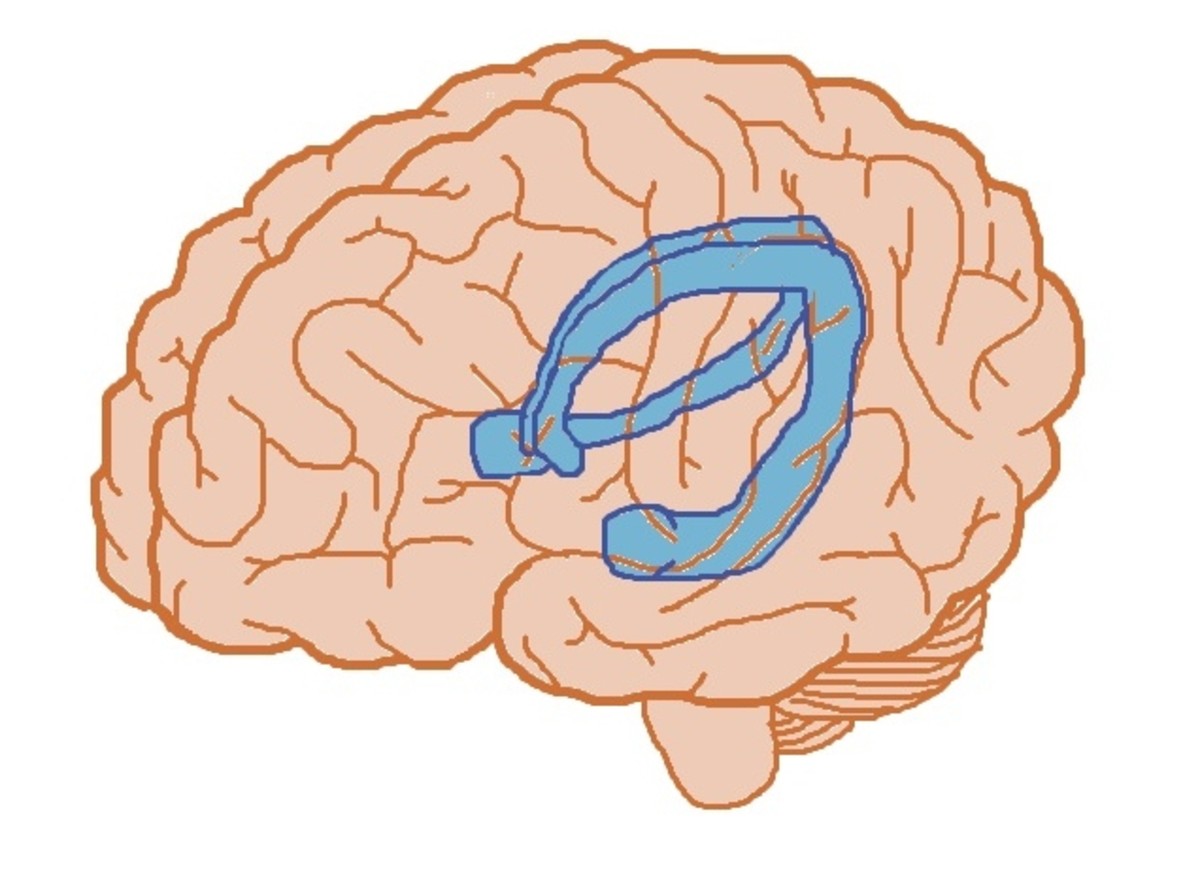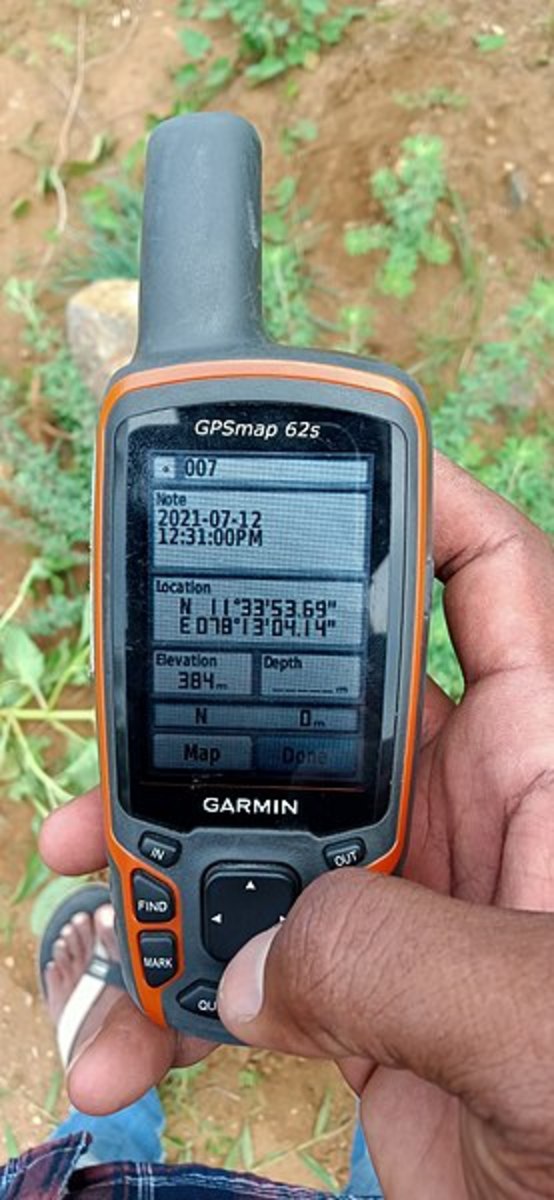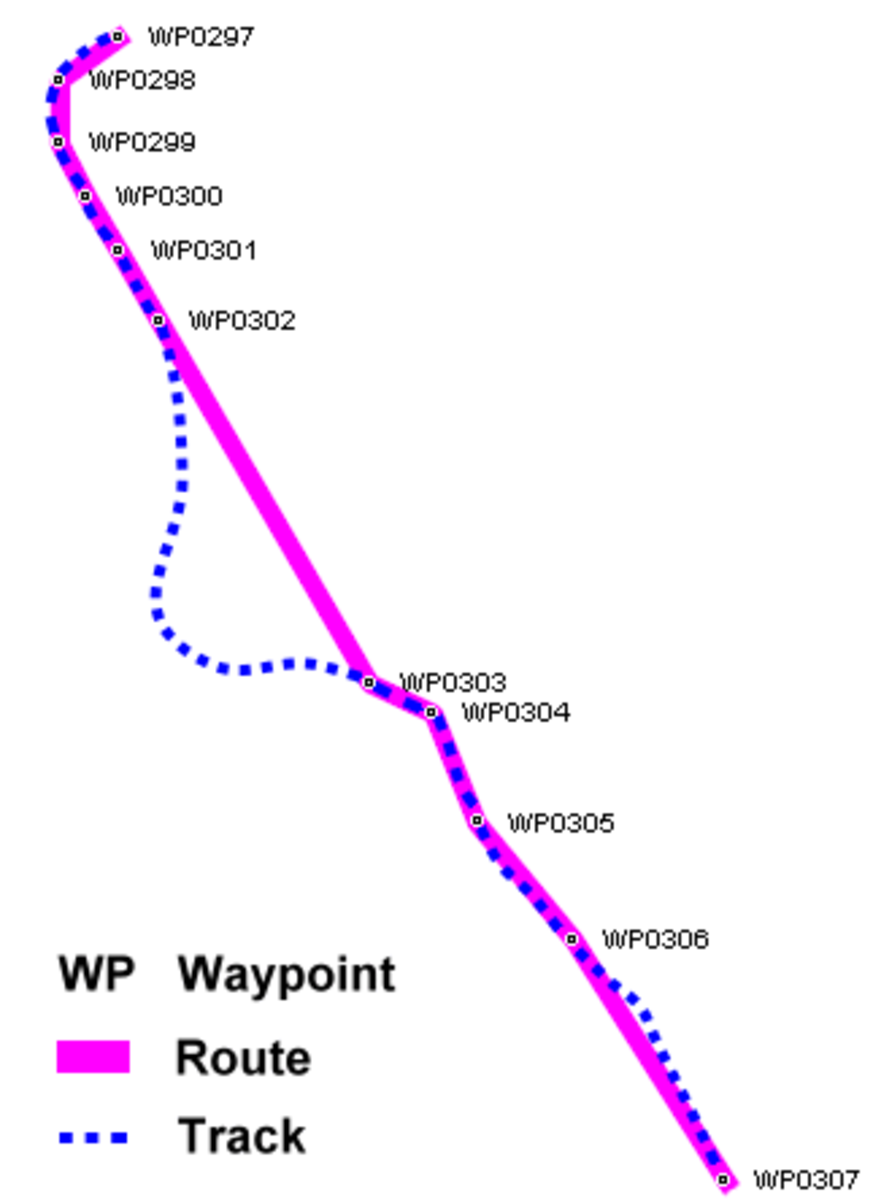A GPS Guide for the Traveler - Chapter One: A Personal and Historical Overview of GPS and its Uses.

ONE
WHAT THE “HECK” IS GPS ANYWAY?
Have you ever asked yourself where did GPS come from? What does GPS stand for anyway? And why is it so prevalent today... yet can’t recall any history about this form of technology? Those questions are answered in this article.
My first impression of a GPS system was that it was a pain in the butt...
First off, I am not a fan of technology. At best I find technology a bothersome tool and at every opportunity I resist - much like a donkey who has its feet dug into the dirt.
My husband and son on the other hand are tech geeks. They love all forms of technology and between the two of them I am provided with many opportunities to experience this kind of stuff - I am not sure if they provide me with these opportunities in hope that I will come over to the “other side” or if they find sadistic pleasure in seeing me struggle.
Typical with this pattern, my first experience with a GPS system was met with hostile resistance. I love maps. I love navigating. I am happy doing those things... and besides what in the heck is a GPS, anyway?
“Without my knowledge, as I pack for a weekend visit to see my son, my husband who has purchased a GPS is down loading the GPS program onto our portable lap top, as he wants to try it out on this trip.
We are ready to leave and I have just buckled my seat belt when he hands me our computer and says “Hold this on your lap.”
“Why?” I ask. “
"Cause this will tell us how to find Garrett’s new home.”
Our son’s home is a mere 6 hour drive away and besides we know were he lives!
“Ughhh!” is my only reply.
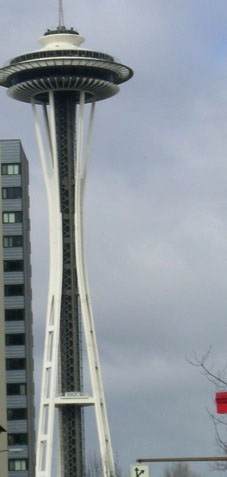
What the heck?
This particular GPS system has a receiver dish which goes on the front window and plugs into the portable computer on my lap. In order to read the information the computer monitor has to be visible. So as the miles tick on, the computer becomes more and more uncomfortable - it is hot and restricts my movements. I start to complain.
“Gary, why do I have to hold this thing? We know where we are going!”
“Gary, it is hot and I hate it. I want to turn it off!”
“Gary, stop the car! I can’t take it anymore!”
As you can see, I got kind of cranky and wanted to throw both the system and my husband out of the car.
Eventually, however, I realized the value of using a GPS and have learned a few techniques so that it works for me rather than working me. This book is written for people who are skeptics of and uncomfortable with technology. Selecting and using a GPS system can be so easy and very helpful once you are savvy to the ins and outs.
I will share my experiences on how I have used our GPS system to ease frustration, and increase the quality of the travel experience.
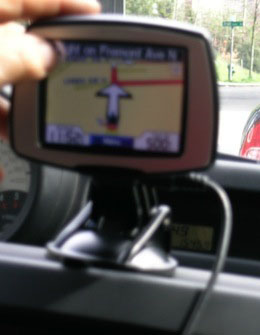

What is GPS?
GPS stands for Global Positioning System and was originally developed by the United States Department of Defense, as a way of tracking and deploying military stuff. Its official name is NAVSTARGPS.
Global Positioning System is currently the only fully functional Global Navigation System in the world. It is based partly on similar ground-based radio navigation systems, such as LORAN and the Decca Navigator which were developed in the early 1940’s and used during World War II. The major distinction and difference is that the Global Positioning System utilizes 24 or more satellites which orbit the earth. The satellite constellation is managed by the United States Air Force.
These satellites provide data to a receiver which enables us to plot coordinates, determine location, speed, direction and time.
The GPS system is comprised of three separate segments.
The first segment is the orbiting satellites distributed equally among six Earth centered circular planes. These planes orbit at an altitude of 12,600 miles. The satellites are arranged in such a way that at least 6 are within line of site from everywhere on the Earth’s surface!
Originally there were 24 satellites, however as of September 2007 this number increased to 31 actively broadcasting. This vastly improves both the reliability and availability of the system.
The second segment is the control. From numerous bases located throughout the world, the United States Air Force, tracks the paths of the satellites. Information such as speed, direction, and time is gathered and sent to the Air Force Space Command master control station at Schriever Air Force Base in Colorado Springs. The data is evaluated. and personnel re-contacts each of the GPS satellites to re -align frequencies, standardize the satellites’ atomic clocks and adjust each internal orbital model. In layman’s terms they keep everything on track.
The final segment is where we come into play. Anyone who wishes to utilize this GPS network must have a GPS receiver. These receivers are comprised of an antenna, tuned to the frequencies transmitted by the satellites. Receiver are often described by the number of satellite channels it can monitor simultaneously. Originally receivers were able to track four or five satellites. Typically receivers today can monitor between 12 and 20.
Remember this was written in 2008, so things probably have changed exponentially.
BLOG
- What the "Heck" is a GPS Anyway? A Personal and Historical Look Back on GPS and its Uses.
Sometimes things just aren't what they seem at first glance.... Sometimes like this hippo swimming in her pond, a lot of surprise is hidden underneath! ONE WHAT THE HECK IS GPS ANYWAY? Have you...

